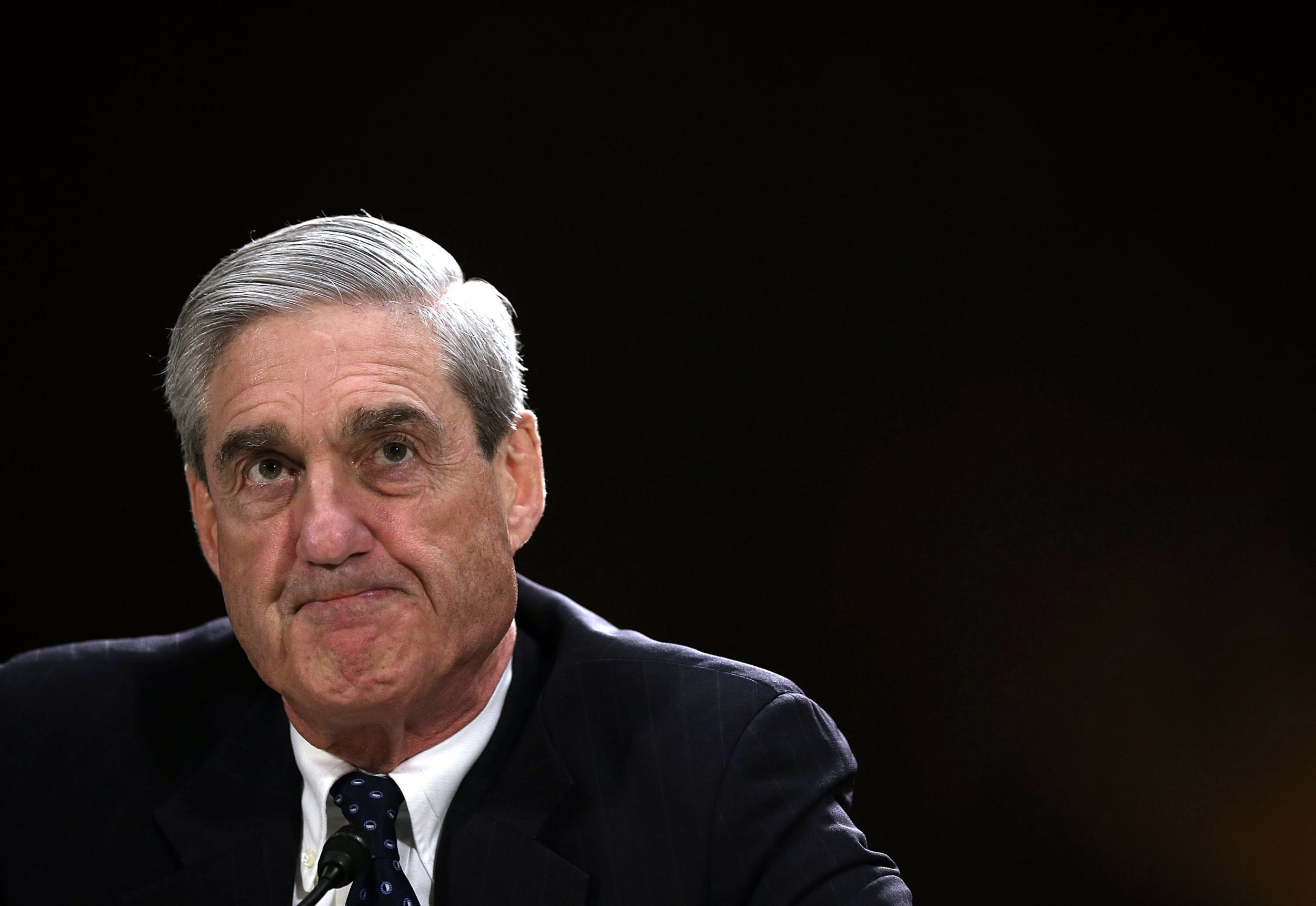
There was one clear takeaway after five hours of testimony Wednesday by Attorney General William Barr before the Senate Judiciary Committee: It's time to hear from the great gray sphinx of the entire Russiagate saga—special counsel Robert Mueller.
Except for muttering "no comment" to an MSNBC reporter after he attended Easter services at his local church a couple of weeks ago, Mueller has been silent for the past 22 months since being appointed special counsel in the Russia probe. Barr has said—and repeated again Wednesday—that he has no objection to Mueller testifying, and his own testimony Wednesday illustrates why that's necessary.
There is any number of questions Mueller needs to answer, starting with the latest contretemps that has Democrats in a frenzy: a March 27 letter in which Mueller complained about Barr's four-page summary—released a few days earlier—of the special counsel's report on the investigation. In the letter, Mueller said Barr's summary "didn't fully capture" his team's work and thus threatened "public confidence" in the probe.
Barr said that he called Mueller and that the special counsel said he was merely complaining about press reporting on the summary. Mueller did not say Barr's summary was inaccurate, the attorney general testified. But Mueller's letter does not talk about media reporting. Whose account of this is correct? Was any of Barr's testimony wrong or misleading? What exactly did Mueller object to in Barr's four-page summary?
More important, Mueller famously declined to reach a conclusion as to whether to charge Trump with obstruction of justice, despite laying out 10 instances—including telling White House counsel Don McGahn to fire Mueller—that seem to show the president was at least tempted to do just that. The Justice Department's Office of Legal Counsel's opinion, which the overall department accepts, is that a sitting president can't be indicted, but Barr insisted again Wednesday that that was not the reason Mueller declined to indict.
So what was the reason? Mueller needs to explain why he didn't make a decision one way or the other. Barr himself said he was "surprised" when Mueller told him he wouldn't come to a conclusion about obstruction of justice.
The special counsel also needs to answer why he wrote that the evidence on obstruction didn't "exonerate" Trump. Mueller's critics point out that a prosecutor's job is not to "exonerate" the suspect of an investigation: it's to decide whether or not to file charges. As Barr put it on Wednesday, you either issue a "pros" letter (prosecute) or a declination letter (decline to charge). That, normally, is what a prosecutor does.
Mueller obviously felt it wasn't that simple in this case. Why? Why, if the evidence was sufficient, did he not recommend indictment? Barr said again on Wednesday that the evidence was insufficient to prosecute a case on obstruction. The reason, he said, is that there was not enough information available about Trump's "intent." In other words, because Mueller found no underlying crime—no conspiracy with the Russian government—the obstruction charge gets more difficult to prove, precisely because it requires criminal intent to be convincing.
Many Democrats believe Mueller's intention was to leave a sufficient number of obstruction bread crumbs for Congress to follow in an impeachment hearing. His report mentions Congress's role in a couple of instances. But Barr said Wednesday that it would be "inappropriate" for Mueller to view his role in that way and that in his conversations with him, the special counsel never raised the subject. Did Mueller seek to provide information to Congress for a possible impeachment hearing?
That would begin in the House, where Barr was to testify Thursday but canceled. If the president is impeached in the House—where the Democrats hold a majority—the Senate would then try Trump. The Republican majority there would be unlikely to convict, but judging from the Democrats' behavior during Barr's hearing in the House, many of them are eager for the opportunity.
Is that what Mueller wanted? The sphinx needs to speak.
Uncommon Knowledge
Newsweek is committed to challenging conventional wisdom and finding connections in the search for common ground.
Newsweek is committed to challenging conventional wisdom and finding connections in the search for common ground.
About the writer
To read how Newsweek uses AI as a newsroom tool, Click here.








